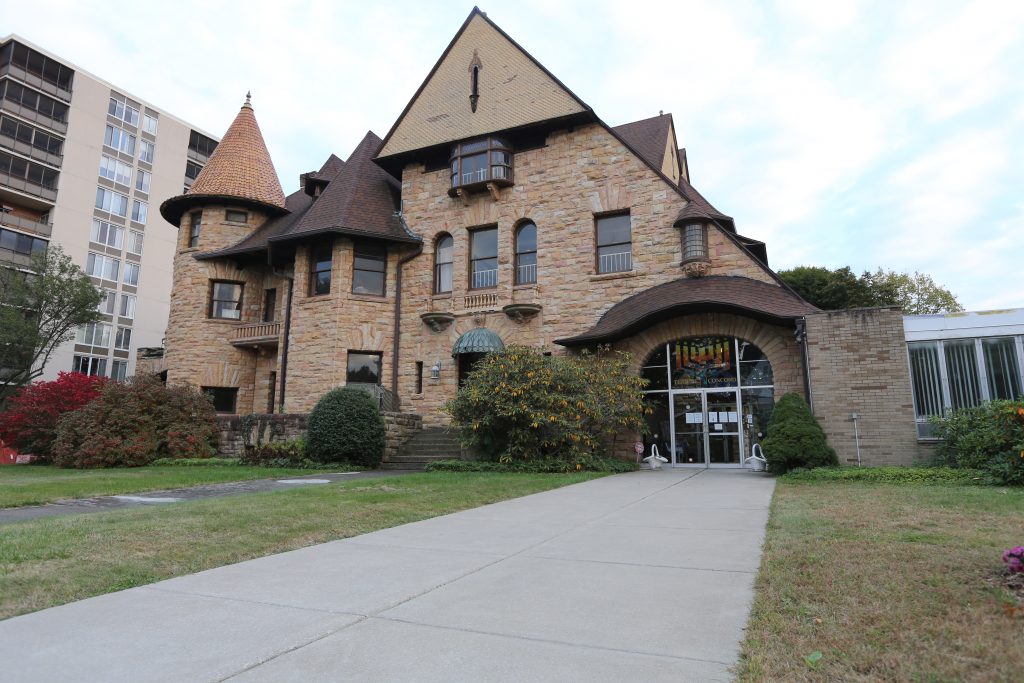Rosh Hashanah and Yom Kippur are two Jewish holidays that fall between September and October every year. While classes have not been held on the High Holidays in the past, this semester is different.
Due to the coronavirus pandemic, Binghamton University’s reopening plan removed breaks entirely. According to the 2020-21 Faculty-Staff Handbook, students who are unable to attend classes on religious holidays will be accommodated.
However, according to the FAQ section of the “Restarting Binghamton” page, the changes to this year’s academic calendar will not be in effect forever.
“This semester’s calendar is unique to the pandemic challenges and not a long-term change,” the page read. “We did not make this decision lightly but made it with the understanding that any student or faculty member who wishes to observe Yom Kippur will not be penalized academically in any way.”
Rabbi Levi Slonim, director of development for Chabad and co-director of Chabad Downtown, said services and holiday meals were held and provided this year in person, but with certain restrictions.
“As with everything being done this semester, with social distancing and masks, Rosh Hashanah services and meals were no different,” Slonim said. “We had services both at our center, which is right near campus in Vestal, and our center [in Downtown Binghamton]. To accommodate the larger interest in the meals, close to 700 holiday ‘to-go’ meals were provided to students through the 48-hour holiday.”
Rabbi Aaron Slonim, executive director of Chabad, expressed the importance of celebrating the holidays during the pandemic.
“Providing and nurturing community — offering opportunities to celebrate holidays — has never been more important than it is now,” Slonim wrote. “[BU] has a long history of being closed on Rosh Hashanah and Yom Kippur with a lot of students going home for one of those holidays and sometimes for both.”
Rabbi Aaron Slonim added that BU made them aware of their plans over the summer, thus Chabad was able to adapt their services.
“It was hard for our students and their families to adjust to this reality, but we tried to do our utmost to address this reality,” Slonim wrote. “We are extremely grateful that we were able to host the opening and closing services of the holiest day on the Jewish calendar in the West Gym. Only such a huge space could provide us with the opportunity to do that.”
Jennifer Stone, assistant director of Hillel at Binghamton, wrote in an email that they were able to safely have in-person services, but also provided online options.
“We’ve been working incredibly hard here at Hillel to serve the Jewish community,” Stone wrote. “We’ve been offering both virtual and safely socially distanced in person events in accordance with University and [Centers for Disease Control and Prevention] guidelines. Safety of our students remains at the forefront of our mission and vision.”
According to Rabbi Aaron Slonim, Chabad went around campus blowing the shofar, a ceremonial ram’s horn trumpet, for students to hear. Slonim said they were able to help Jewish students who were in quarantine celebrate by providing them with holiday essentials including the High Holiday Prayer Book and holiday foods.
For students who were quarantined and could not attend in-person Yom Kippur services, a pre-holiday Zoom meeting took place. Chabad did not livestream the services. However, synagogues of other Jewish denominations allowed for their congregations to celebrate remotely. Yelena Keller-Wyman, a senior double-majoring in sociology and philosophy, politics and law, wrote that she celebrated remotely and in-person this year.
“My congregation did virtual services, so I joined those,” Keller-Wyman wrote. “I also made challah with my housemate and did some reflecting with her and another friend at Confluence Park on Rosh Hashanah and then we threw rocks into the water. I feel like we should have had classes off and it puts people that are observant in a tough situation. My professor was accommodating and didn’t give me any trouble about missing class today.”
Noa Popky, a sophomore majoring in psychology, also found that her professors were abiding by the religious policies in the Faculty-Staff Handbook, but she is worried about her work piling up.
“Not having classes off has not been ideal, but since most of them are on the weekends this year, not much changed,” Popky wrote. “It is just stressful to miss classes and have to do the extra work on top of my current workload when I don’t do work on these days. My professors are very understanding about missing class, but I have not asked for extensions for anything.”
While Jewish students at BU had to celebrate the Jewish holidays differently this year, Stone acknowledged that this is an abnormal occurrence for BU but normal for many other schools.
“While we recognize the challenge that our students have faced by having classes on the High Holidays, we also acknowledge the difficult decision the University had to make,” Stone wrote. “Universities across the country typically do not give off [for] Yom Kippur and Rosh Hashanah to their students, and taking into consideration the shortened academic calendar in order for students to depart during Thanksgiving, we support their decision to do what is best for the health and safety of the BU student body. We look forward to spring semester, when we might be able to resume in-person programming, but will do so only with approval and guidance from the University.”
The next Jewish holiday is Sukkot, which starts on Oct. 2 and ends on Oct. 9. Slonim and Stone said that their respective organizations are making adjustments to ensure the safety of the sukkah, a temporary hut put up during the holiday.



